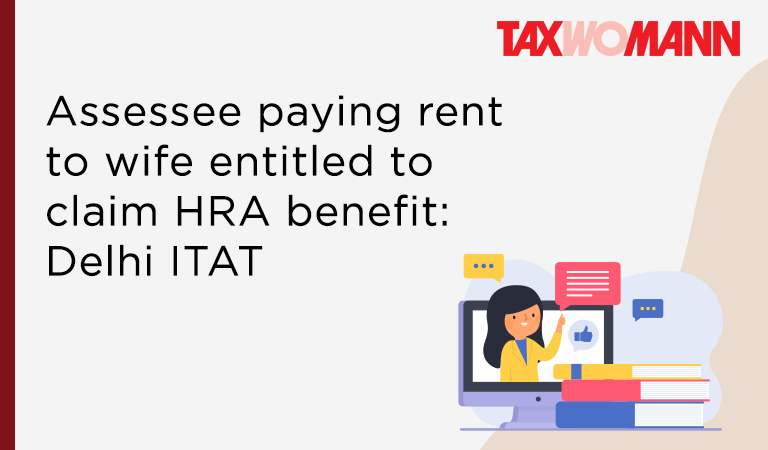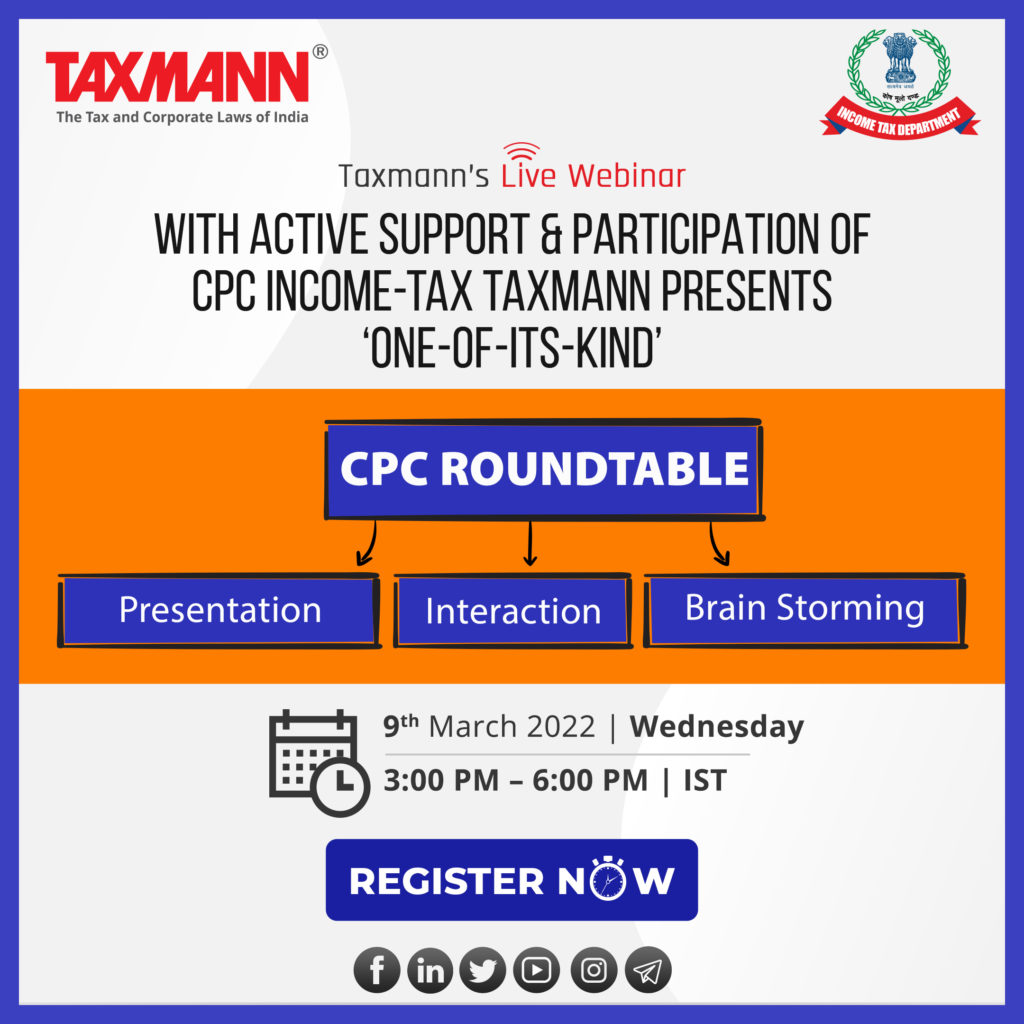Assessee paying rent to wife entitled to claim HRA benefit: Delhi ITAT
- News|Blog|Income Tax|
- 2 Min Read
- By Taxmann
- |
- Last Updated on 8 March, 2022

Case Details: Abhay Kumar Mittal v. DCIT - [2022] 136 taxmann.com 78 (Delhi - Trib.)
Judiciary and Counsel Details
-
- A. D. Jain, Vice-President and Dr. B.R.R Kumar, Accountant Member
- Rajesh Mahana, Adv. for the Appellant.
- Sanjay Kumar, Sr. DR for the Respondent.
Facts of the Case
The assessee claimed the benefit of House Rent Allowance (HRA) on rent paid to his wife from September 2012 to March 2013. During the assessment proceedings, Assessing Officer (AO) asked the assessee to explain the capacity of his wife to purchase the property.
Assessee said that his wife had purchased the property for which he funded Rs. 87.50 lacs, and the remaining amount was invested from her sources, i.e., the maturity of Fixed Deposits. However, AO noticed that the assessee’s wife had no independent source of income to invest in FDs. Thus, he clubbed the rental income in the hands of the assessee.
CIT(A) confirmed the order of AO. Aggrieved-assessee filed the instant appeal before the Delhi Tribunal.
ITAT Held
The Delhi Tribunal held that though the assessee’s wife had low returned income, she had received a loan from the assessee. She also duly repaid that loan from the redemption of mutual funds and liquidation of fixed deposits.
There is no bar on the part of the assessee to extend a loan from his known sources of income to his wife. Similarly, there is no bar on the assessee’s wife to repay the loan from her mutual funds and fixed deposits.
The assessee had paid house rent, and the recipient, the assessee’s wife, had declared the same under the head’s income from house property in her returns which was accepted by the revenue. The house was also registered in the name of the wife.
The observation that the assessee had got inadequate income; hence he couldn’t afford to purchase a house can’t be accepted as the sources for purchase of the house in the hands of the wife were proved rather never doubted.
Further, CIT(A) contention that the husband cannot pay rent to the wife is devoid of any legal implication supporting any such contention. Hence, keeping in view the entire facts of the case, the benefit of HRA was to be allowed to the assessee.
Check out Taxmann's Live Webinar with CPC Income-Tax! The 'One-of-a-Kind' – CPC Roundtable Presentation | Interaction | Brain Storming 🗓️ 9th March 2022 (Wednesday) | 🕒 3:00 PM – 6:00 PM (IST) 👩💻👨💻 Register Now for FREE! (Limited Slots Available): https://taxmann.social/HxkX 💬 ASK from CPC You can also raise your concern(s)/suggestion(s) with CPC regarding Registration, E-filing, Processing, Refund and Rectification related issues. CPC officers will take up the issues during the live event. Coverage of the Webinar & the Speakers: ✔️ Welcome Address & Moderator| Mukesh Patel | International Tax Expert ✔️ Keynote Address | Dr Sibichen Mathew | Director of Income-tax | CPC-ITR
Disclaimer: The content/information published on the website is only for general information of the user and shall not be construed as legal advice. While the Taxmann has exercised reasonable efforts to ensure the veracity of information/content published, Taxmann shall be under no liability in any manner whatsoever for incorrect information, if any.

Taxmann Publications has a dedicated in-house Research & Editorial Team. This team consists of a team of Chartered Accountants, Company Secretaries, and Lawyers. This team works under the guidance and supervision of editor-in-chief Mr Rakesh Bhargava.
The Research and Editorial Team is responsible for developing reliable and accurate content for the readers. The team follows the six-sigma approach to achieve the benchmark of zero error in its publications and research platforms. The team ensures that the following publication guidelines are thoroughly followed while developing the content:
- The statutory material is obtained only from the authorized and reliable sources
- All the latest developments in the judicial and legislative fields are covered
- Prepare the analytical write-ups on current, controversial, and important issues to help the readers to understand the concept and its implications
- Every content published by Taxmann is complete, accurate and lucid
- All evidence-based statements are supported with proper reference to Section, Circular No., Notification No. or citations
- The golden rules of grammar, style and consistency are thoroughly followed
- Font and size that’s easy to read and remain consistent across all imprint and digital publications are applied




 CA | CS | CMA
CA | CS | CMA
